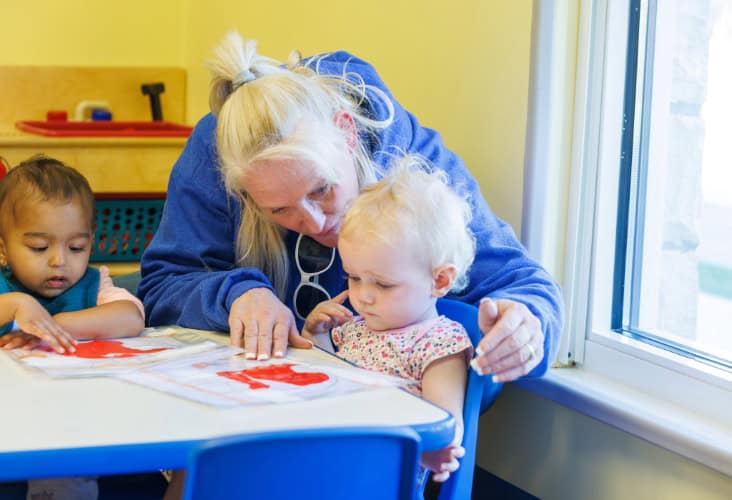
Every child is unique, with their own way of absorbing, processing, and applying new information. In the realm of preschool education, it’s essential to acknowledge that a one-size-fits-all approach doesn’t work for all students. This is where individualized education programs (IEPs) and differentiated instruction come into play. By tailoring learning experiences to meet each child’s needs, we can help them reach their fullest potential.
In this blog, we’ll explore the benefits of individualized learning plans, how they cater to different learning styles, and why personalized lesson plans make such a difference in a child’s growth.
What Is an Individualized Education Program?
An individualized education program (IEP) is a plan designed specifically to meet the unique needs of a child, typically within the special education system. However, the concept of individualized plans extends beyond formal IEPs. Personalized instruction can also benefit children in general preschool settings by accommodating their interests, strengths, and challenges.
The purpose of individualized plans is to provide a roadmap for helping children learn and grow at their own pace, using methods that work best for them. This approach not only increases engagement but also ensures that children are genuinely absorbing and retaining new skills and concepts.
The Importance of Understanding Learning Styles
Children learn in different ways. Some are visual learners who benefit from images, colors, and hands-on activities, while others may be auditory learners who excel when information is presented verbally. There are also kinesthetic learners who learn best through movement and touch.
Recognizing a child’s learning style is key to creating effective individualized education programs and implementing differentiated instruction. When teachers and parents understand how a child learns best, they can develop lesson plans and preschool education activities that cater to these preferences, making learning more accessible and enjoyable.
Differentiated Instruction in Action
Differentiated instruction means tailoring teaching methods to meet the diverse needs of students. In a preschool setting, this might involve:
- Flexible Grouping: Grouping children based on their current skill level or learning preference. For example, one group might be working on a hands-on science experiment while another listens to a story and discusses key concepts.
- Adjusting Activities: Providing different levels of challenge within the same activity. If the class is working on counting, some children may be using blocks to physically count while others write numbers or solve simple counting puzzles.
- Incorporating Multiple Learning Styles: Designing lesson plans that include visual aids, music, movement, and tactile activities ensures that every child has a chance to connect with the material.
The goal of differentiated instruction is to make sure all children can access the curriculum in a way that works for them.
How Individualized Plans Benefit Preschoolers
1. Boosts Confidence and Motivation
When children receive learning opportunities tailored to their unique strengths and interests, they’re more likely to feel confident and motivated to learn. Personalized plans help children experience small wins, reinforcing their self-esteem and love for learning.
2. Addresses Learning Gaps Early
Individualized plans allow teachers to identify areas where children may be struggling and provide targeted support. This early intervention can help prevent small challenges from becoming bigger obstacles.
3. Encourages Active Participation
Children are naturally curious and engaged when activities align with their learning style. By creating preschool education activities that reflect their interests, teachers can spark a child’s enthusiasm for learning and keep them actively involved.
4. Supports Social and Emotional Development
Tailoring learning experiences to meet individual needs also supports social and emotional growth. Children feel valued and understood, which strengthens their sense of belonging and helps them build positive relationships with peers and teachers.
Creating Individualized Lesson Plans
Developing individualized lesson plans for children doesn’t have to be complicated. Teachers start by observing each child’s strengths, challenges, and interests. From there, they can create targeted learning experiences that align with the child’s developmental goals.
For example, if a child enjoys building with blocks, incorporating math concepts like counting or sorting by color can make learning math engaging and fun. Another child who loves music may learn best by singing songs that reinforce language skills.
Activities Parents Can Use to Help Their Children
Here are some preschool education activities parents can use at home to support individualized learning:
1. Visual Learners
- Storyboards: Create a storyboard with pictures and drawings to illustrate a story. Encourage your child to retell the story using the images.
- Sorting Games: Use colored objects, like buttons or blocks, and ask your child to sort them by shape, size, or color.
2. Auditory Learners
- Rhyming Games: Sing rhyming songs and ask your child to come up with words that rhyme. This helps build phonemic awareness.
- Listening to Audio Books: Play audiobooks and discuss the story afterward to build listening and comprehension skills.
3. Kinesthetic Learners
- Movement Games: Create a “letter hopscotch” game by writing letters on the ground and asking your child to jump to the correct letter when you call it out.
- Sensory Bins: Fill a bin with sand, rice, or beans and hide small objects or letters for your child to find. This can be both calming and educational.
4. Social Learners
- Role-Playing: Set up a pretend play area with different themes, like a grocery store, doctor’s office, or restaurant, and role-play with your child to build social and language skills.
- Group Games: Play cooperative games that require teamwork, such as building a puzzle together.
By focusing on individualized education programs, embracing differentiated instruction, and creating personalized lesson plans and activities, we can help every child learn in a way that’s tailored to their unique needs and strengths. Together, parents and teachers can foster a love of learning that lasts a lifetime!
Ready to Learn More?
If you found this post helpful, you’ll love our monthly newsletter! Sign up today for more practical tips, parenting advice, and updates on all things Kiddi Kollege.


